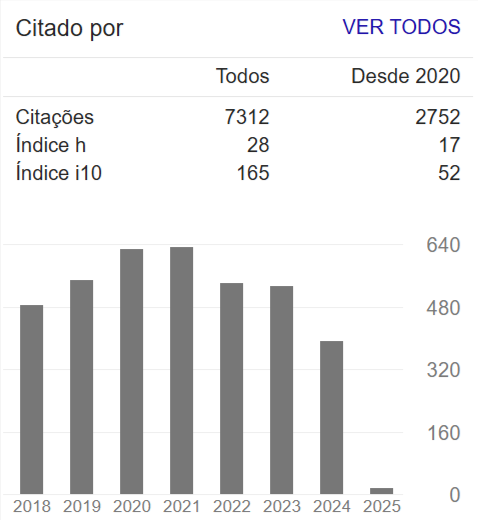Isotopic characterization of dissolved CO2 in Groundwater in a contaminated area with jet fuel in the municipality of Paulínia (SP)
Abstract
A new method of dissolved gas sampling in groundwater monitoring wells with screen section below water table is presented in this paper. Sampling of dissolved CO2 was successfully conducted in a jet fuel contaminated groundwater in the city of Paulínia/SP. Several studies have confirmed that biodegradation is responsible for changes in the values of δ13C of CO2, CH4 and DIC (dissolved inorganic carbon) present in the groundwater. The analysis of the samples collected by the proposed methodology indicated that in the majority of the samples biodegradation did not change significantly the isotopic signature of the dissolved CO2 in the aquifer. This can be explained by high concentrations of CO2 in the soil of the region and depleted natural values of δ13C (~ -24.1‰), which masks the isotopic signature produced by biodegradation processes. Thus, one must exercise caution in interpreting isotopic values of CO2 collected in monitoring wells.

















